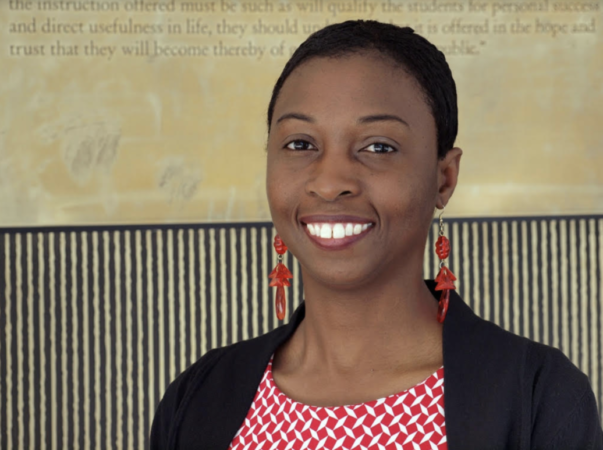In recent years, brilliant innovations in technology have occurred on account of diverse techies putting themselves in a position to bring their creative ideas to life. While there are many inventions that stem from people in STEM-focused fields, the reality is that these revolutionary technologies can come from any wide range of perspectives and people that come from all walks of life.
Though Silicon Valley has been called out for its failure to diversify its workforces, Black and brown technicians and app developers around the world aren’t letting that stop them from creating their own seat at the table.
Take for instance Apple’s recent efforts to boost diversity in tech as a result of its $100 million Racial Equity and Justice Initiative. These efforts include creating programs that aim to address issues of racial equity in education, employment and economic inequality. Moreover, bold initiatives like this have created opportunities for diverse, self-taught app developers to be at the forefront of the future of tech.
Apple’s Entrepreneur Camp for Black Founders and Developers is an example of how the company is using its resources to tap in with an outstanding group of Black techies to offer guidance, support and access to a world-class network of ambitious tech leaders.
The tech giant’s upcoming Worldwide Developers Conference (WWDC) is another example of how the corporate side of the tech industry is investing more time, energy and money into these developers. By offering them a platform to showcase their new technologies, they have a chance to introduce tools and resources that were created to help better society at the hands of Black and brown folks.
At the tech giant’s recent meet and greet with diverse developers, AfroTech had a chance to speak with app developer Sonja Sulcer — an entrepreneur and self-taught coder from the Caribbean who created an app to boost the confidence of Black and brown businesswomen like herself.
“I was taking this coding class and I was feeling discouraged, so then I went looking for some kind of encouragement from women entrepreneurs of color to help brighten my day because this entrepreneurship journey is tough,” she tells us. “[But] I could not find that [encouragement] in one place so it was a lightbulb moment for me to [create my app].”
Sulcer took her newly acquired skills and developed her app, Encourage Her — an app that provides daily inspirational quotes from women leaders of color as encouragement for a new generation of leaders.
The app features several tools to help women learn from one another, read inspiring quotes to help kickstart their days and also write down any future business ideas that may come to fruition.
Sulcer is a model of what happens when you bolster the tech industry with diverse talent. According to her, she believes that diversity breeds innovation in technology because “you need a [variety] of ways of thinking, and that can only come from having diverse groups of people. It’s a no-brainer.”
Even though she doesn’t work directly in tech, Sulcer still found a way to carve a path for herself that included her own interests and expectations around her coding skills. Contrary to popular belief, people do not have to be young, mathematically-inclined, a scientist, or work directly in the industry in order to learn how to code.
For people like Sulcer, coding was just a new way of being able to express herself and the outcome made for an inspirational app invention that many Black and brown women find useful to their daily routines.
“I tell people now that in learning to code I found a new avenue of creativity that allows me to take an idea and bring it to life,” Sulcer says. “Coding is creativity and if you have a desire to create a new product this is an opportunity to do so. I just want to tell my story to let people know that they don’t have to be afraid to code because it can be done.”
Sulcer is also working on another educational app called “Parents Say The Wisest Things” — an ode to her mother who passed away in 2014. According to her, the app will serve as a place for parents to receive advice on manners they can pass on to their children, just as her mother did for her.
Sulcer isn’t the only developer with Apple that’s a testament to its diversity efforts. Ahead of the tech giant’s upcoming Worldwide Developers Conference, a special group of young people has been named participants in the 350 Swift Student Challenge, with winners coming from all different countries and regions around the world.
Among the group are two young, gifted and Black individuals who are also using tech to solve real-world problems. Damilola Awofisayo — a 17-year-old student from Woodbridge, Virginia — created a non-profit called TecHacks with a mission to create a “supportive environment for girls everywhere to create, problem-solve, and showcase their talents alongside like-minded females to compete and work with.” Awofisayo is also working on an American Sign Language app expected to launch on the App Store.
Additionally, 17-year-old Maya Dummett — who hails from Morristown, New Jersey — used her passion for social justice and coding skills to develop a website focused on Black Lives Matter to participate in politics through STEM. The rising senior is planning to double major in Computer Science and Political Science/Government once she goes off to college.
Diversity in tech does not have to be viewed as a quota that needs to be fulfilled. Instead, we should be turning to the perspectives of Black and brown folks who hold the answers to some of tech’s biggest questions when it comes to these communities. Just by listening to and helping one another, we can shift the narrative around what the future of tech will look like in years to come.

